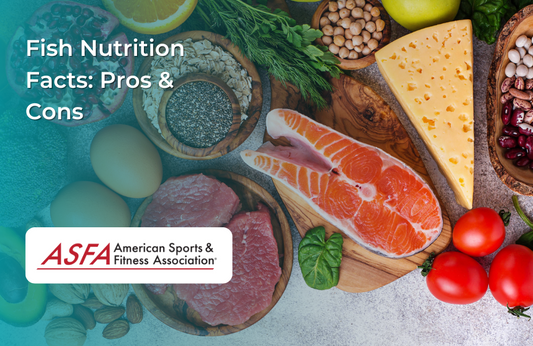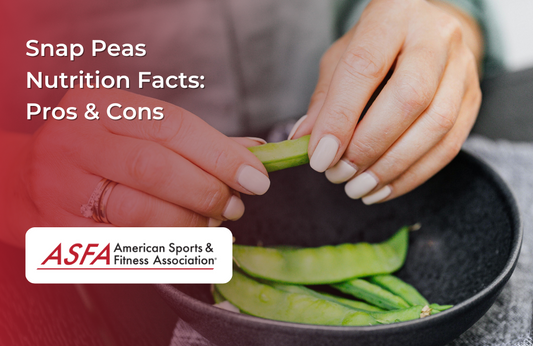Exercise is a key factor in maintaining a strong, healthy heart, but your diet plays an equally crucial role. The foods you choose to eat provide the fuel your body needs to perform daily activities and reach fitness goals, while also promoting long-term cardiovascular health. Incorporating healthier unsaturated fats, found in seafood, nuts, seeds, avocados, and oils, is crucial for promoting long-term cardiovascular health. A heart-healthy diet focuses on foods rich in essential nutrients like fiber, antioxidants, and healthy fats, all of which work together to reduce cholesterol, regulate blood pressure, and prevent heart disease. Not all foods are equal when it comes to their nutritional content, so it’s important to choose wisely.
Below is a detailed look at some of the top heart-healthy foods that health-conscious individuals incorporate into their diets. These foods are known for their ability to protect and strengthen the heart, and when combined with regular exercise, they can help you achieve optimal health and fitness.
Understanding Heart Disease
Heart disease is a broad term that encompasses various conditions affecting the heart and blood vessels. It stands as the leading cause of death for both men and women in the United States, accounting for over 600,000 deaths each year. Among the different types of heart disease, coronary heart disease (CHD) is the most prevalent. Also known as coronary artery disease (CAD), CHD occurs when the coronary arteries become narrow or blocked, restricting the flow of oxygen-rich blood to the heart. This condition is primarily caused by plaque buildup inside the arteries, which consists of cholesterol and fatty materials. Understanding heart disease is crucial for taking proactive steps to prevent it and maintain overall heart health. By being informed, you can make healthier choices that support your cardiovascular system and reduce the risk of developing heart-related issues.
Top Heart-Healthy Foods to Include in Your Diet
1. Apples: A Nutrient Powerhouse for the Heart
Apples are one of the most commonly consumed fruits, and for good reason—they're packed with antioxidants and fiber, both of which contribute to heart health. Apples are particularly high in soluble fiber, which binds to LDL (bad) cholesterol in the digestive system and helps remove it from the body. This action helps lower overall cholesterol levels, reducing the risk of heart disease. The antioxidants in apples, including quercetin, help fight oxidative stress and inflammation, two factors linked to the development of cardiovascular issues.
-
How to Enjoy: Apples are highly versatile and can be eaten as a quick snack, added to salads, baked into dishes, or blended into smoothies for a nutrient boost.
2. Green Tea: A Heart-Friendly Beverage
Green tea is a popular drink known for its high levels of flavonoids, a group of antioxidants that help protect the heart by reducing inflammation and improving blood vessel function. Drinking green tea regularly has been shown to lower the risk of blood clots, enhance blood circulation, and support overall heart health. Some studies also suggest that green tea may help lower blood pressure and cholesterol levels over time, making it a valuable addition to a heart-conscious diet.
-
How to Enjoy: Green tea can be enjoyed hot or cold. You can drink it throughout the day as a soothing beverage or use it as a base for smoothies.
3. Blueberries and Other Berries: Nature's Antioxidant Boosters
Blueberries, along with other colorful berries like strawberries, raspberries, and blackberries, are rich in antioxidants and polyphenols, which protect the heart by fighting free radicals and reducing inflammation. The high fiber content in berries also supports heart health by helping to regulate cholesterol levels. Berries are naturally low in calories and packed with vitamins like vitamin C, making them an excellent choice for those looking to support cardiovascular health while enjoying a sweet, nutrient-dense snack.
-
How to Enjoy: Berries are easy to incorporate into your meals. Add them to your morning oatmeal, mix them into yogurt, blend them into smoothies, or enjoy them as a simple snack on their own.
4. Oatmeal: A Heart-Healthy Start to Your Day
Oatmeal is widely regarded as a heart-healthy food, especially when you choose plain, unprocessed varieties like steel-cut oats. Oatmeal is a rich source of soluble fiber, which can help reduce LDL cholesterol by binding to it in the digestive tract and removing it from the body. Avoid flavored or processed oatmeal varieties, as they often contain high amounts of sugar and preservatives, which can detract from the health benefits. Oatmeal's high fiber content also helps keep you full, stabilizes blood sugar levels, and supports digestive health.
-
How to Enjoy: Opt for plain oatmeal and add your own heart-healthy toppings like fresh berries, nuts, chia seeds, or a drizzle of honey for a nutritious breakfast.
5. Whole Grains: A Fiber-Rich Foundation for Heart Health
Whole grains such as quinoa, brown rice, barley, and whole wheat are nutrient-dense options that support heart health by providing high levels of fiber, vitamins, and minerals. Whole grains help regulate cholesterol levels, reduce the risk of high blood pressure, and stabilize blood sugar levels, all of which are key to maintaining a healthy heart. When choosing whole grain products, look for options that are low in added sugars and avoid refined grains, which have been stripped of their nutrient content.
-
How to Enjoy: Use whole grains as a base for meals, such as grain bowls or salads, or swap out refined grains like white rice or pasta for more nutritious whole grain alternatives.
6. Dark Chocolate: A Sweet Treat for Heart Health
Surprisingly, dark chocolate—when consumed in moderation—can have heart health benefits due to its high levels of flavanols, a type of antioxidant found in cocoa. Flavanols help improve blood flow, reduce blood pressure, and increase the flexibility of blood vessels, all of which support cardiovascular health. To maximize these benefits, it's important to choose dark chocolate that contains at least 70% cocoa and limit your intake to small portions.
-
How to Enjoy: Have a small square of dark chocolate as a snack or dessert. You can also sprinkle dark chocolate shavings on top of oatmeal, yogurt, or fruit.
7. Soy Milk: A Dairy-Free Option for Lowering Cholesterol
Soy milk is a low-fat, plant-based alternative to dairy milk that is naturally low in fat and high in isoflavones, compounds that have been shown to help reduce cholesterol levels. Replacing saturated fat-rich dairy products with soy-based alternatives can support heart health by lowering LDL cholesterol and improving overall blood lipid profiles. Soy milk is also rich in essential nutrients like protein, calcium, and vitamin D, making it a heart-friendly choice for those seeking a dairy alternative.
-
How to Enjoy: Use soy milk in your morning coffee, smoothies, or over cereal for a heart-healthy, dairy-free option.
8. Broccoli: A Green Powerhouse for Cardiovascular Health
Broccoli is a nutrient-dense vegetable that is low in calories, high in fiber, and packed with antioxidants like vitamin C and beta-carotene. These antioxidants protect the heart by neutralizing harmful free radicals, while the fiber content helps regulate cholesterol levels. Broccoli is also an excellent source of vitamin K, which supports proper blood clotting and helps protect against calcification of the arteries, a key contributor to heart disease.
-
How to Enjoy: Steam, sauté, or roast broccoli as a side dish, or toss it into salads, stir-fries, and soups for a boost of nutrition.
Foods to Limit
While a heart-healthy diet emphasizes the inclusion of nutritious foods, it’s equally important to limit or avoid foods that can increase the risk of heart disease. Foods high in saturated fat, sodium, and added sugars should be consumed in moderation. Saturated fats, found in items like butter, lard, and coconut oil, can raise blood cholesterol levels, increasing the risk of heart attack and stroke. Limiting foods high in sodium, such as processed and packaged foods, can help reduce blood pressure and the risk of coronary heart disease. Added sugars, commonly found in sugary drinks and baked goods, can lead to weight gain and elevate the risk of heart disease. By making mindful choices and reducing the intake of these harmful components, you can significantly improve your heart health and overall well-being.
Creating a Heart-Healthy Meal Plan
Creating a heart-healthy meal plan involves incorporating a variety of minimally processed foods, including fruits, vegetables, whole grains, lean proteins, and healthy fats. Aim to include a rainbow of colors on your plate to ensure a range of essential vitamins and minerals. Whole grains, such as brown rice, quinoa, and whole wheat bread, provide fiber, vitamins, and minerals that can help lower blood pressure and cholesterol levels. Lean protein sources, like poultry, fish, and legumes, can help reduce saturated fat intake and provide essential nutrients. Healthy fats, found in foods like nuts, seeds, avocados, and olive oil, can help lower total blood cholesterol and reduce the risk of heart disease. By creating a heart-healthy meal plan, you can take proactive steps towards maintaining a healthy weight, reducing blood pressure, and lowering the risk of heart disease. Making these healthy choices consistently will support your cardiovascular health and contribute to a longer, healthier life.
Key Principles of a Heart-Healthy Diet
In addition to incorporating the specific foods listed above, there are a few general principles that can help guide your heart-healthy eating habits:
-
Focus on Fiber: Fiber is crucial for heart health, particularly soluble fiber, which helps lower cholesterol. Aim to include plenty of fiber-rich foods like fruits, vegetables, and whole grains in your diet.
-
Limit Saturated and Trans Fats: High intake of saturated fats and trans fats can raise LDL cholesterol and increase the risk of heart disease. Choose healthier fats, such as those found in olive oil, avocados, nuts, and seeds, and avoid processed foods that contain trans fats.
-
Choose Colorful Fruits and Vegetables: A colorful plate often means a wide range of antioxidants and phytonutrients. Include a variety of fruits and vegetables, especially those rich in colors like deep greens, reds, oranges, and blues.
-
Reduce Sodium and Sugar Intake: High levels of sodium can increase blood pressure, while excessive sugar can contribute to weight gain and inflammation, both of which are detrimental to heart health. Be mindful of processed foods, as they often contain hidden sodium and sugar.
The Importance of Expert Guidance for Personalized Nutrition
If you're serious about optimizing your heart health and overall wellness, working with a sports nutritionist can be incredibly beneficial. The American Sports and Fitness Association (ASFA) offers an Advanced Sports Nutrition Certification, which equips fitness professionals with the knowledge to develop personalized nutrition plans tailored to each individual's unique health needs and fitness goals. A certified sports nutritionist can help you make informed food choices that not only support heart health but also enhance athletic performance and recovery.
Conclusion: Take Control of Your Heart Health Through Diet
Diet and exercise are the cornerstones of heart health. By choosing foods that are rich in fiber, antioxidants, and healthy fats—like apples, berries, oatmeal, and broccoli—you can nourish your body while protecting your heart. Paired with regular physical activity, a heart-healthy diet can help reduce cholesterol, regulate blood pressure, and lower the risk of heart disease.
Take charge of your health by incorporating these foods into your daily meals and focusing on long-term habits that support your cardiovascular system. Whether you're aiming to improve athletic performance or simply want to live a longer, healthier life, your food choices play a critical role in achieving your goals. For more personalized nutrition advice, consider working with a certified sports nutritionist to ensure your diet aligns with your fitness objectives.
To learn more about the ASFA Advanced Sports Nutrition Certification, click the link below and start your journey to better health today!





